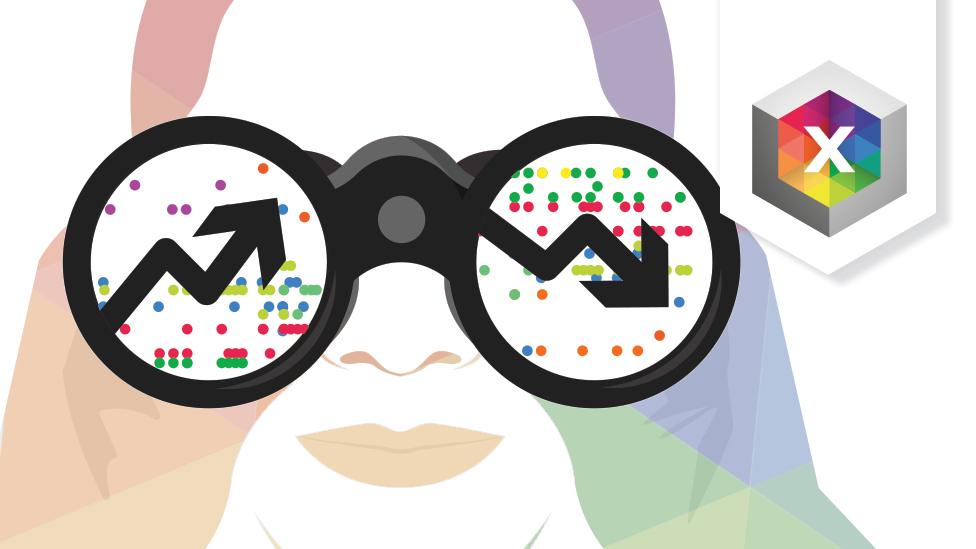General election 2019: What are the issues in Leeds?
- Published
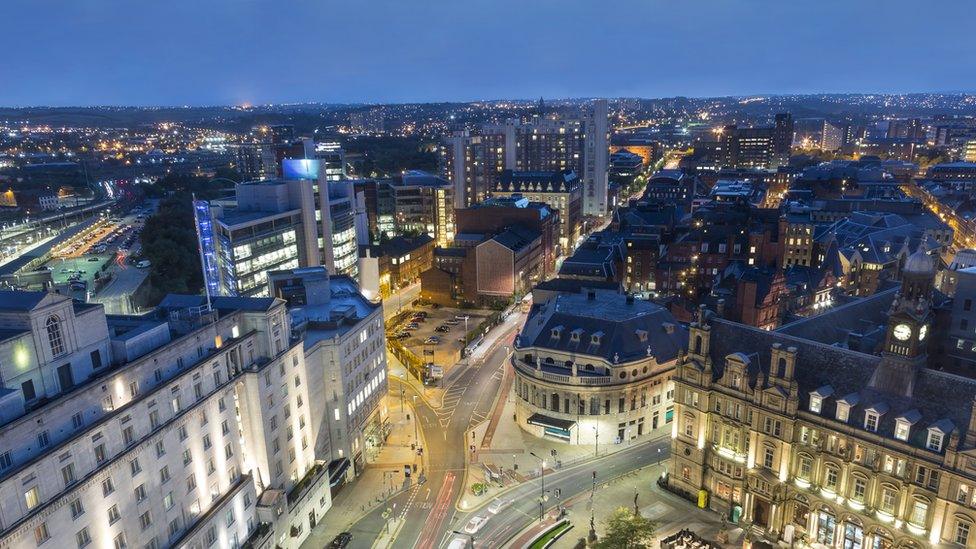
Leeds has evolved into a major regional centre for financial services and the media industry
What do you think of when you think of Leeds? Football? Shopping? One unusual bit of trivia is that soda water was invented here in 1767 - but will the election here be just as full of fizz?
Leeds was very close to being a 50:50 city in the EU referendum, with Remain edging it by just 0.3%.
The city has seen a lot of change in recent years to become a hub for the professional services, in particular the financial and media sectors.
In the past few months, Leeds has won the battle to host a new base for Channel 4, while this week 500 new customer services jobs were announced by Sky.
Transport is a key issue in the city, with commuters coming into work from around Yorkshire.
Pacer trains: What's the problem?
Delays in replacing the old 1980s Pacer trains have proved unpopular, with the government starting a process which would remove the franchise from operator Northern, something supported by local Labour MPs.
Labour has also called for buses in Leeds to be operated by local council leaders through the West Yorkshire Combined Authority.
However, the Labour-run council is facing awkward questions about its support for the expansion of Leeds-Bradford Airport, despite declaring a climate emergency.
The Conservatives point to infrastructure upgrades, such as the new entrance at Leeds station, and say it will be their government which will get rid of the Pacers… eventually.
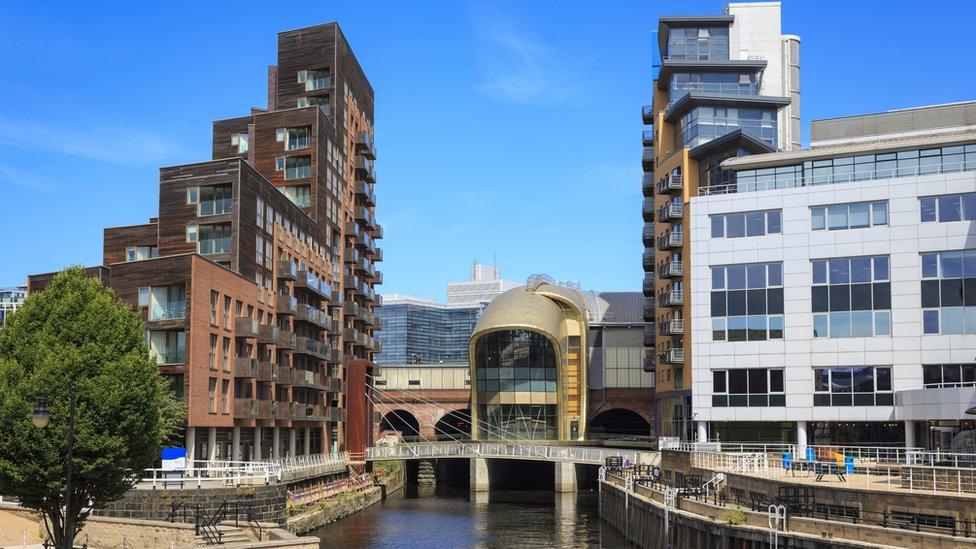
A key issue for Leeds is what the parties pledge to do about transport infrastructure in the city
They also point to Boris Johnson's commitment to a new high speed line between Leeds and Manchester.
The city has been represented by some major political figures, including Leeds Central's Hilary Benn, who passed the Bill that prevented Boris Johnson taking the UK out of the EU with a no-deal exit on 31 October.
Shadow ministers Richard Burgon and Fabian Hamilton, as well as chair of the Business Select Committee Rachel Reeves, were all also elected for Labour in the city last time.
Government whip Stuart Andrew and party vice-chair Alec Shelbrooke are two of the Conservatives' big names in Leeds.
The Lib Dems have not had any MPs here since 2017, although both they and the Brexit Party had a strong showing at the European elections in May.
The Green Party has three councillors on the city council and the Yorkshire Party will campaign in the election, arguing for more powers to be brought to the county from London.
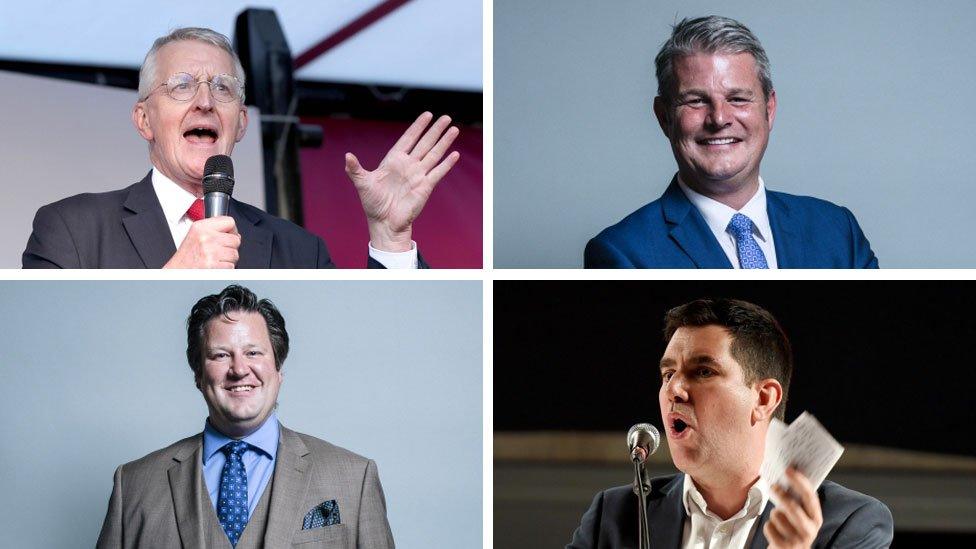
Leeds MPs (clockwise from top left) Hilary Benn, Stuart Andrew, Alec Shelbrooke, Richard Burgon
Each of the eight constituencies in the city has its own battles, but key seats to watch include Leeds North West where Labour's Alex Sobel is hoping to win for a second time against a strong Lib Dem challenge from Kamran Hussain, while the Conservatives suggest their candidate Stewart Harper could come through the middle.
The area covers the leafy suburbs around Headingley, an area near the University of Leeds that is home to thousands of students who are likely to play a big role in choosing the next MP.
Head a bit further out of the city and you hit some of the market towns that contrast with the big city image you might have of Leeds. Go south down the M621 and you'll find the suburbs of Morley and Outwood, a seat both Boris Johnson and Jeremy Corbyn have visited in the past few weeks.
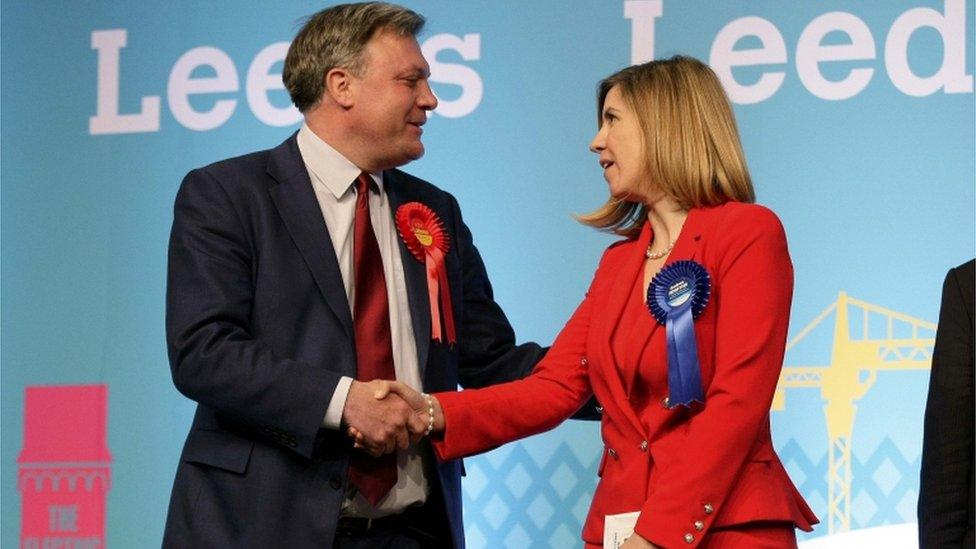
Conservative Brexit supporter Andrea Jenkyns ousted former Labour chancellor Ed Balls in the 2015 election
It's the seat where Brexit-supporting Conservative Andrea Jenkyns defeated Labour's Shadow Chancellor Ed Balls in 2015. Her strong support for Brexit is likely to play well with voters in this part of south Leeds. However, Labour's Deanne Ferguson has also been campaigning in the area for months.
But it's the nearby traditional market town of Pudsey, between Leeds and Bradford, which, in 2017, had the smallest majority in the city of just 331 votes. Government whip Stuart Andrew is hoping to hold on for the Conservatives against Labour's Jane Aitchison.
West Yorkshire has become known for having a lot of tight election battles and Leeds is likely to play a key role in this election, as it has many times before.
- Published6 December 2019
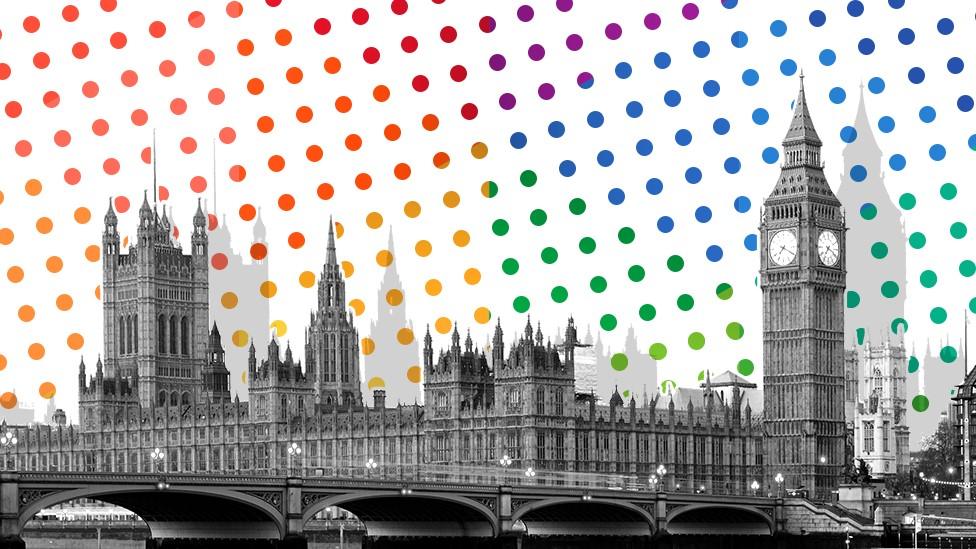
- Published27 November 2019
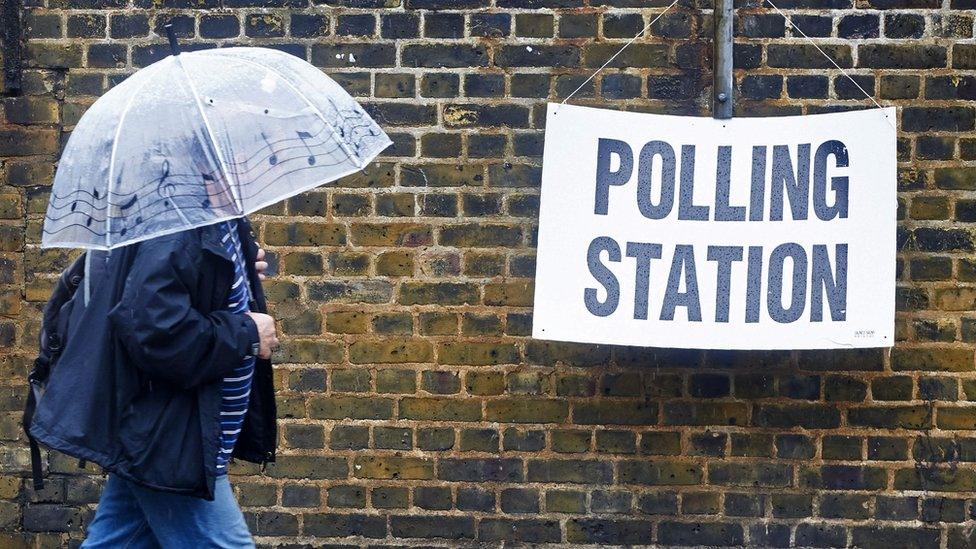
- Published11 December 2019
